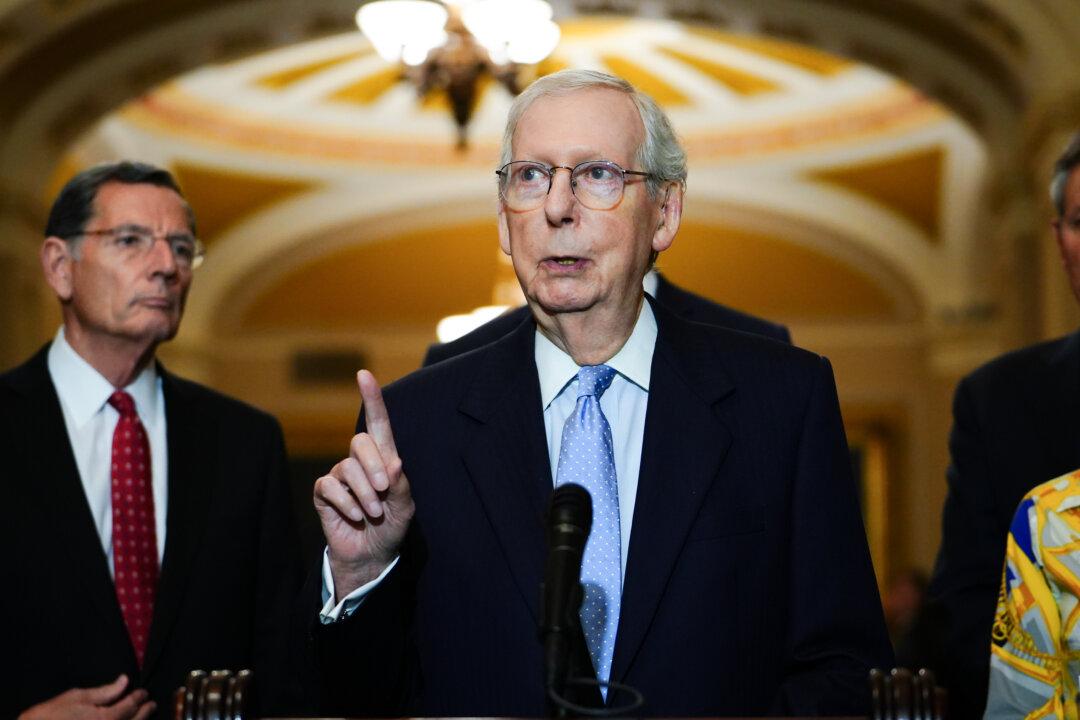Senate Majority Leader Mitch McConnell (R-Ky.) dismissed the idea of putting term limits on a Senate Republican leader, saying “it’s totally inappropriate.”
“Well, we have term limits now. They’re called elections,” Mr. McConnell told reporters when asked on March 6 whether he supports term limits for the Senate GOP leader position.




